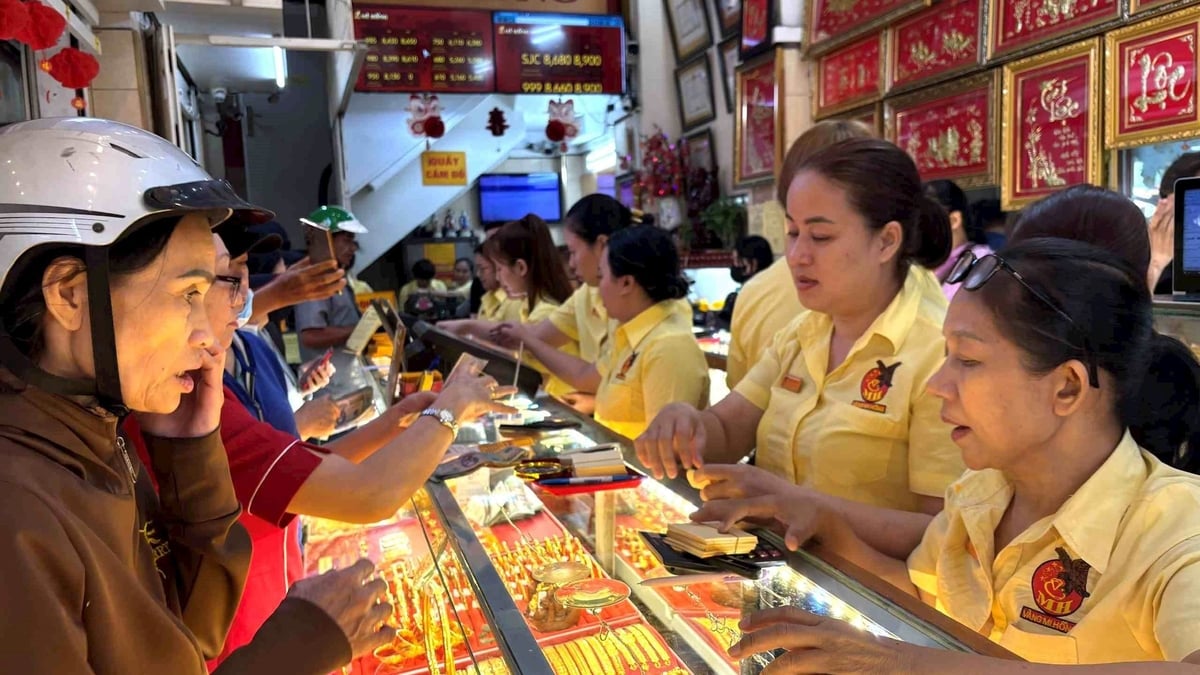The forum was organized by Investment Newspaper in collaboration with the Vietnam Financial Advisory Community (VWA). The forum focused on discussing issues of interest rates, exchange rates, investment environment, etc. According to Deputy Minister of Planning and Investment Tran Quoc Phuong, the world situation since the beginning of the year has continued to fluctuate rapidly and complicatedly. Enterprises in particular, and the economy in general, are "swimming in a whirlpool of difficulties".

Mr. Tran Quoc Phuong, Deputy Minister of Planning and Investment
Mr. Phuong also said that the industrial production index in July 2023 increased by 3.9% compared to the previous year and increased by 3.7% compared to the same period last year... In the first 7 months, foreign investment attraction increased for the first time in the year by 4.5% compared to the same period last year, reaching nearly 16.24 billion USD; export turnover of goods reached 195.4 billion USD, still down 10.6% compared to the same period last year, but the trade surplus was over 16.5 billion USD...
Mr. Phuong forecasts that in the last months of 2023 and the whole of 2024, Vietnam's economy will continue to face many difficulties and challenges, from both the unpredictable fluctuations in the world and regional situations and the limitations and difficulties within the economy. For Vietnam's economy to be able to stand firm and continue to grow and develop, the business sector must be supported to overcome difficulties; the strength of the financial, monetary, securities, corporate bond markets, etc. is very important.
Many businesses are having to pay interest rates of 14 - 15%.
Dr. Le Xuan Nghia, an economic expert, said that one of the biggest risks today is that lending interest rates are still high, with many businesses having to pay interest rates of 14-15% per year, despite the State Bank of Vietnam (SBV) making many efforts to reduce operating interest rates.
According to Mr. Nghia, one of the reasons why interest rates are still quite high is because the banking industry is still wary of exchange rate fluctuations. However, according to this expert, there are 3 factors to see that the exchange rate will decrease this year, the USD is unlikely to "heat up" again and the State Bank may have more room to reduce operating interest rates further.
First, the USD index has fallen from 115 points at the end of last year to 102 points and may fall further to 100 points. The USD index is unlikely to rise again in the context of a multipolar world using many currencies as it is today.
Second, the price of imported raw materials may increase, especially fuel prices - putting pressure on the exchange rate - but the Ministry of Finance still has room to intervene (taxes and fees on gasoline).
Third, Vietnam's balance of payments remains positive.
"These are factors showing that the pressure on exchange rates in the coming time is no longer dangerous, the State Bank can buy foreign currencies to increase the country's foreign exchange reserves. It is predicted that the exchange rate in 2023 - 2024 will remain stable. For an open country like Vietnam, a stable exchange rate is a condition for the asset market and the stock market to stand firm and recover slightly," said Mr. Nghia.
Regarding interest rates, according to Mr. Nghia, it is likely that the Fed will stop raising interest rates at the end of this year and may reduce them from the end of next year. Europe may also stop raising interest rates from the end of this year because inflation is decreasing faster than expected. This is an opportunity for the State Bank to further reduce interest rates to support businesses.
Value added tax should be reduced and exempted until the end of 2025.
Dr. Nguyen Dinh Cung, former Director of the Central Institute for Economic Management (CIEM), said that to promote economic growth and create jobs, internal reform is the decisive factor.
"International experience and practice in Vietnam show that when there is difficulty outside, there is a strong internal motivation to change. But in reality, we have not seen enough internal reforms to offset the difficulties from outside. We are using too little fiscal policy to support businesses, and are even increasing costs for businesses," said Mr. Cung.

Dr. Nguyen Dinh Cung said that it is necessary to quickly cure the "fear of mistakes and responsibility" of officials to promote administrative procedures.
According to Mr. Cung, the disbursement rate of business support packages under the Economic Recovery and Development Program is low. In the current context, it is necessary to focus on implementing fiscal policies rather than monetary policies, especially drastically implementing the policy of refunding value-added tax (VAT) for businesses, while extending the implementation period of the VAT reduction policy. It is forecasted that difficulties will continue until 2024, so the Government needs to maintain the reduction and exemption of VAT until the end of 2025 to stimulate demand because the current difficult time is not the time to consider increasing budget revenue.
The most important issue, according to this expert, is reforming the business environment. Especially in difficult circumstances, improving the business environment and reducing costs creates safety and less risk in business and investment activities of enterprises. In addition, due to the fear of making mistakes and fear of responsibility of a part of civil servants, administrative procedures are prolonged, increasing costs.
Source link


























![[Photo] National Assembly Chairman attends the seminar "Building and operating an international financial center and recommendations for Vietnam"](https://vphoto.vietnam.vn/thumb/1200x675/vietnam/resource/IMAGE/2025/7/28/76393436936e457db31ec84433289f72)









































































Comment (0)